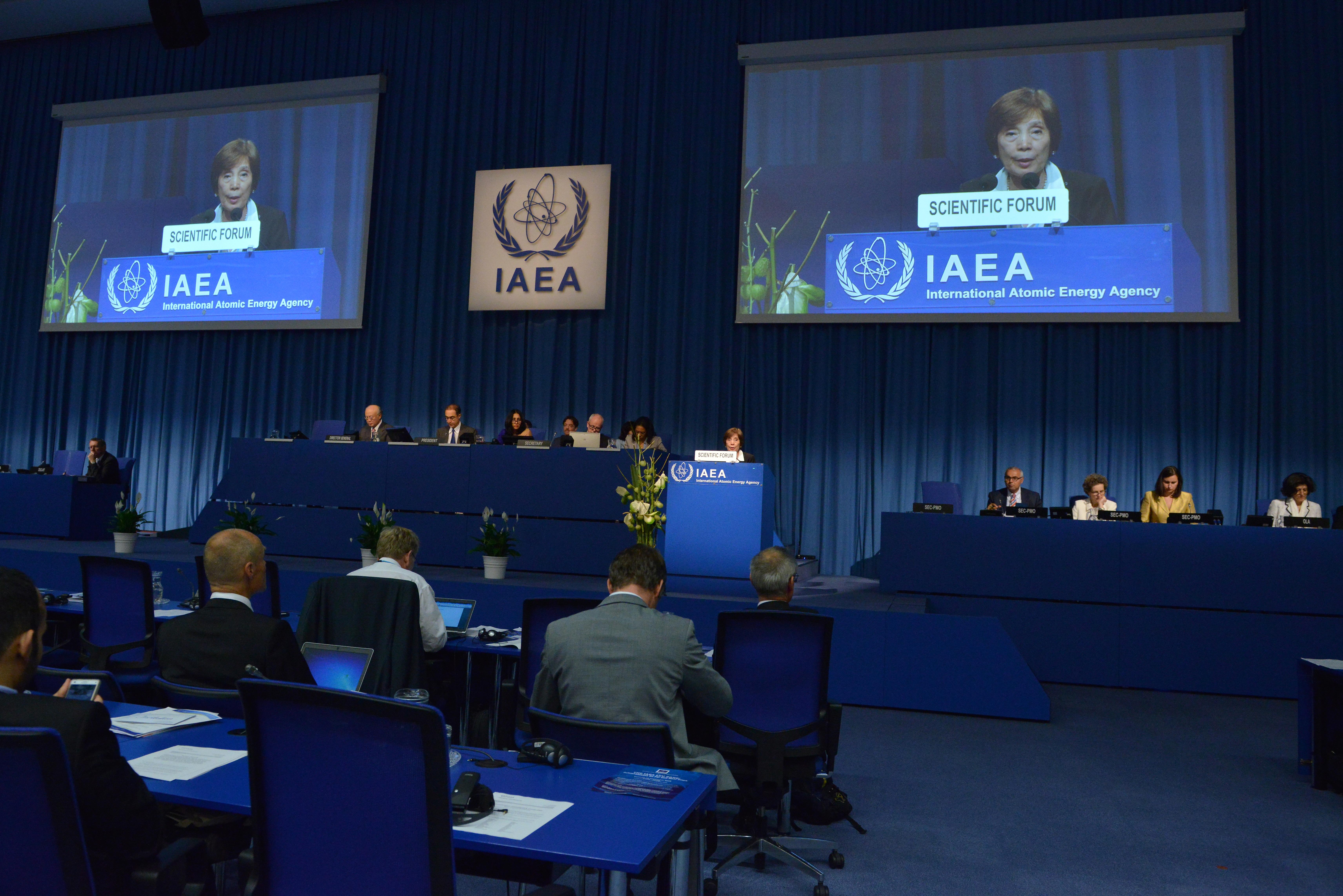
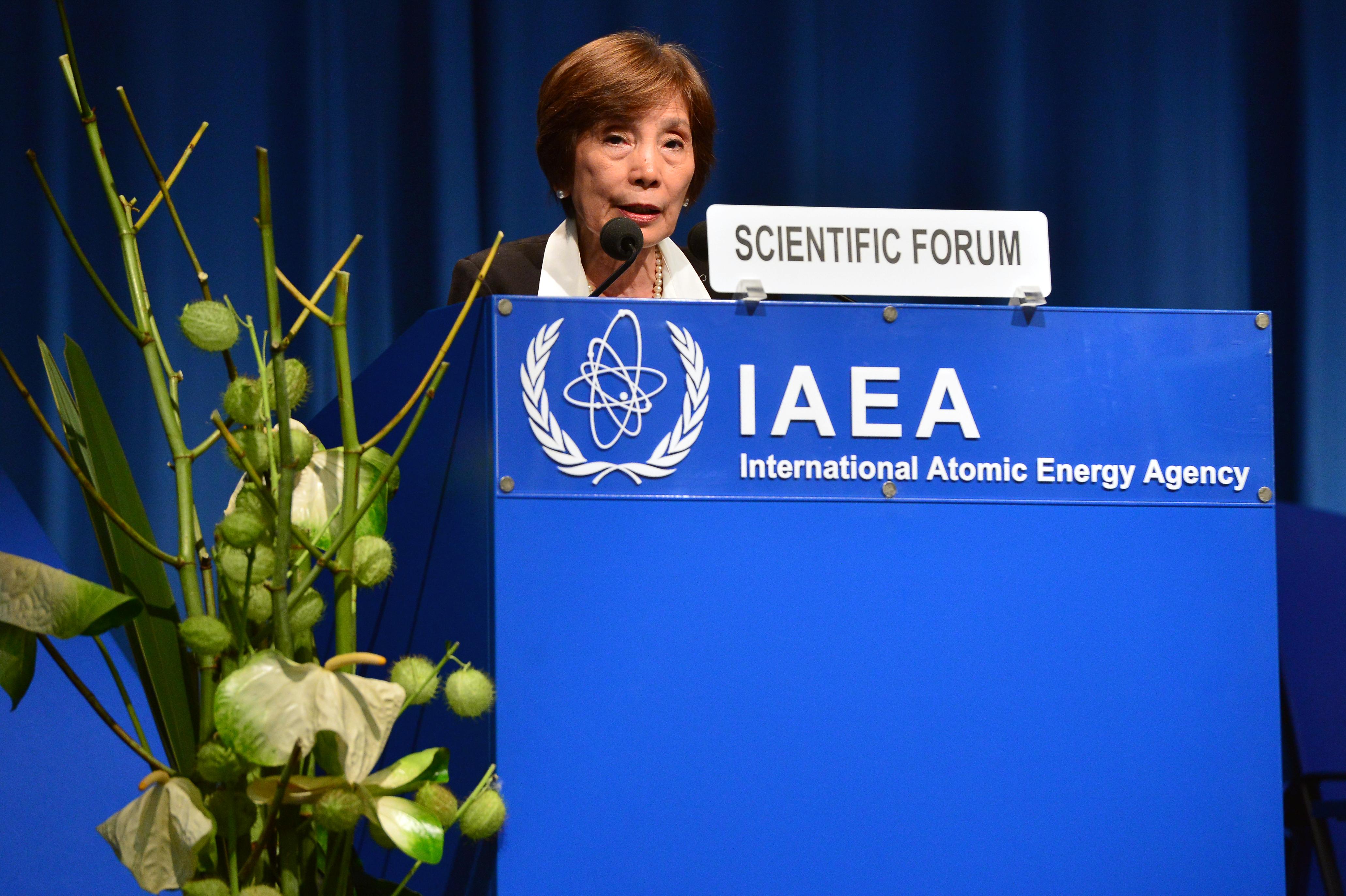
DOST-PNRI Director Dr. Alumanda Dela Rosa reports the results of the IAEA Scientific Forum at the plenary of the 59th General Conference of the International Atomic Energy Agency (IAEA). Photos by Dean Calma, IAEA
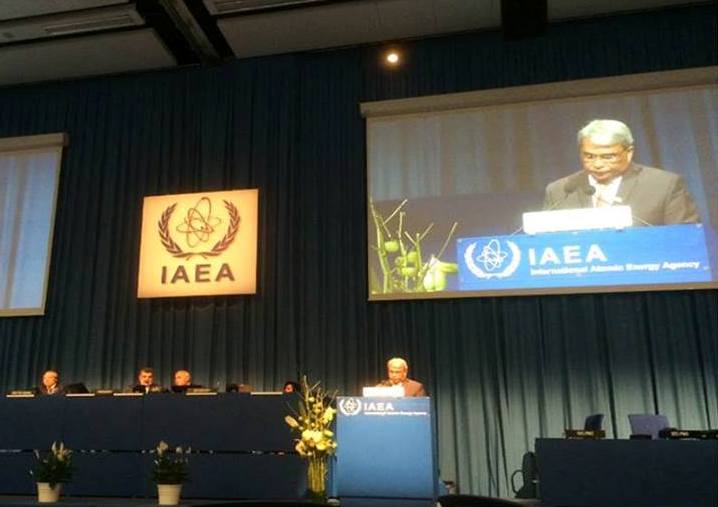
Chargé d’Affaires Sulpicio Confiado of the Philippine Embassy in Vienna delivers the Philippine statement at the plenary of the 59th IAEA General Conference on September 15. Photo from DFA
The Philippines at the 59th IAEA General Conference
Highlighting the Philippines’ progress in the nuclear field through its partnership with the International Atomic Energy Agency (IAEA), Department of Science and Technology – Philippine Nuclear Research Institute (DOST-PNRI) Director Alumanda Dela Rosa and other members of the Philippine Delegation represented the country in the 59th IAEA General Conference held at Vienna, Austria from September 14-18.
As the United Nations organization for worldwide cooperation in promoting the safe, secure and peaceful uses of nuclear science and technology, the IAEA annually gathers thousands of delegates from 165 nations to further its programs and projects and to showcase the latest developments in the nuclear field across the globe, both in its research and development applications and in issues involving nuclear safety, security and safeguards.
For this year’s conference, the Philippines was given the privilege of being elected as one of the Vice-Presidents of the conference and also as one of the eleven countries which will serve on the 35-member IAEA Board of Governors for a term of two years. Meeting five times in a year, the Board of Governors decides on the Agency’s programs and budget, applications for membership, and approval of safeguards agreements, among others.
The Philippine government expressed its gratitude to the IAEA at the conference, as majority of the country’s projects involving nuclear applications receive support from the agency through financial assistance, equipment grants, fellowships, training courses and expert missions.
“The Philippines places high priority on the Agency’s Technical Cooperation Programme since it serves as the primary vehicle for the peaceful uses of nuclear techniques which has benefitted Member States across all regions,” said the Chargé d’Affaires of the Philippine Embassy in Vienna and Deputy Permanent Representative to the IAEA Mr. Sulpicio Confiado, who headed the Philippine Delegation, as he addressed the plenary of the general conference on the evening of September 15.
The address highlighted several PNRI projects on nuclear and radiation applications such as the development of precision farming methods with stable isotopes and the establishment of an electron beam facility. The Philippines also currently serves as a pilot country for several IAEA projects such as the hydrology studies under the IAEA Water Availability Enhancement (IWAVE) Project, and the outreach program on secondary schools under the project on Supporting Sustainability and Networking of National Nuclear Institutions in Asia and the Pacific Region.
The Philippines was also able to shore up its commitment to nuclear safety, security and safeguards through the Integrated Nuclear Security Support Plan (INSSP), as well as the elevated emergency preparedness and response measures in light of the upcoming Asia-Pacific Economic Cooperation (APEC) Summit in the Philippines this November 18-19. The plenary message also mentioned the visit of Director General Yukiya Amano to the Philippines in January this year as part of his tour of the Member States of Southeast Asia, as well as his anticipated presence as the guest of honor at the Third Philippine Nuclear Congress from December 7 to 9.
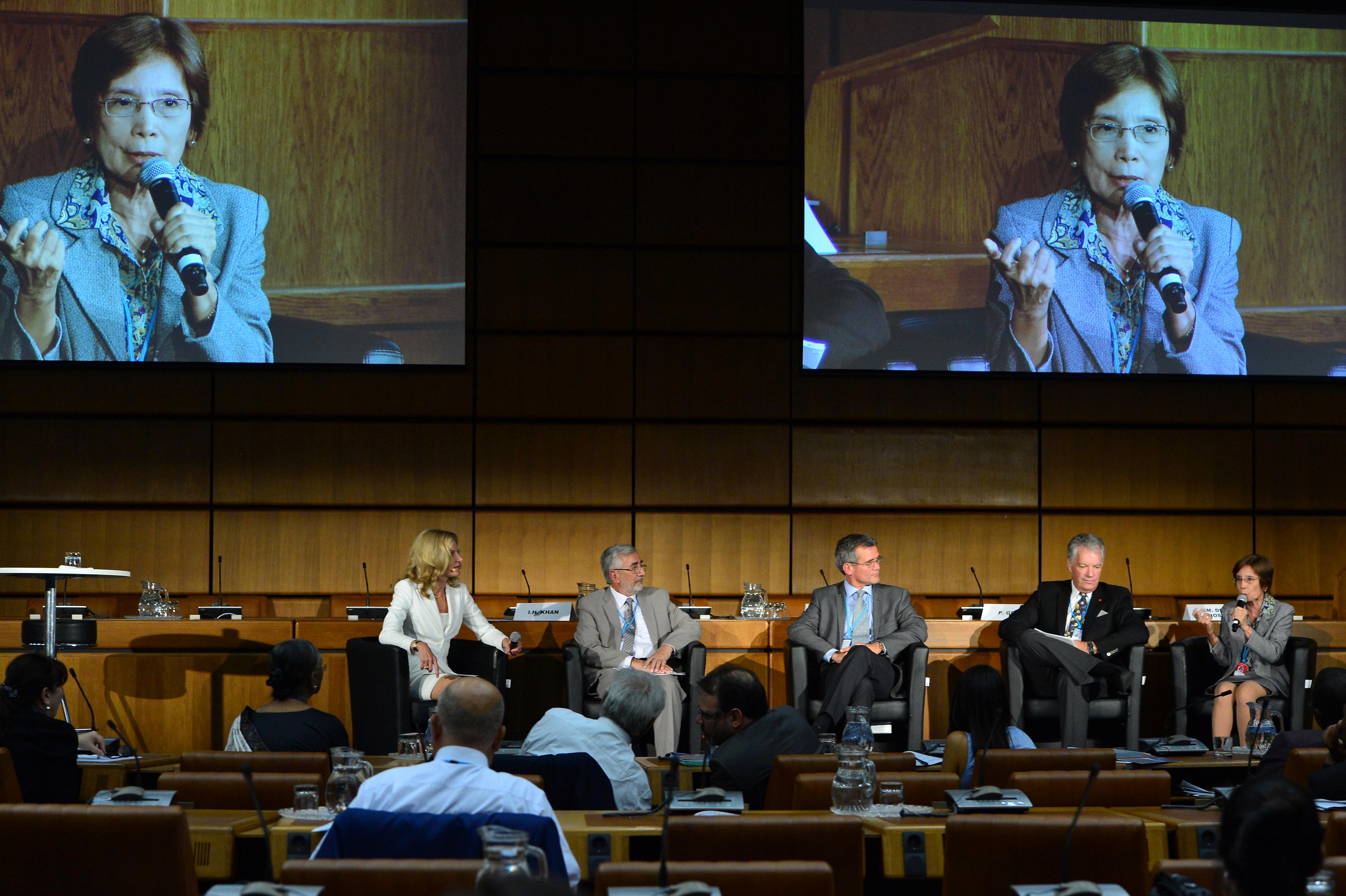
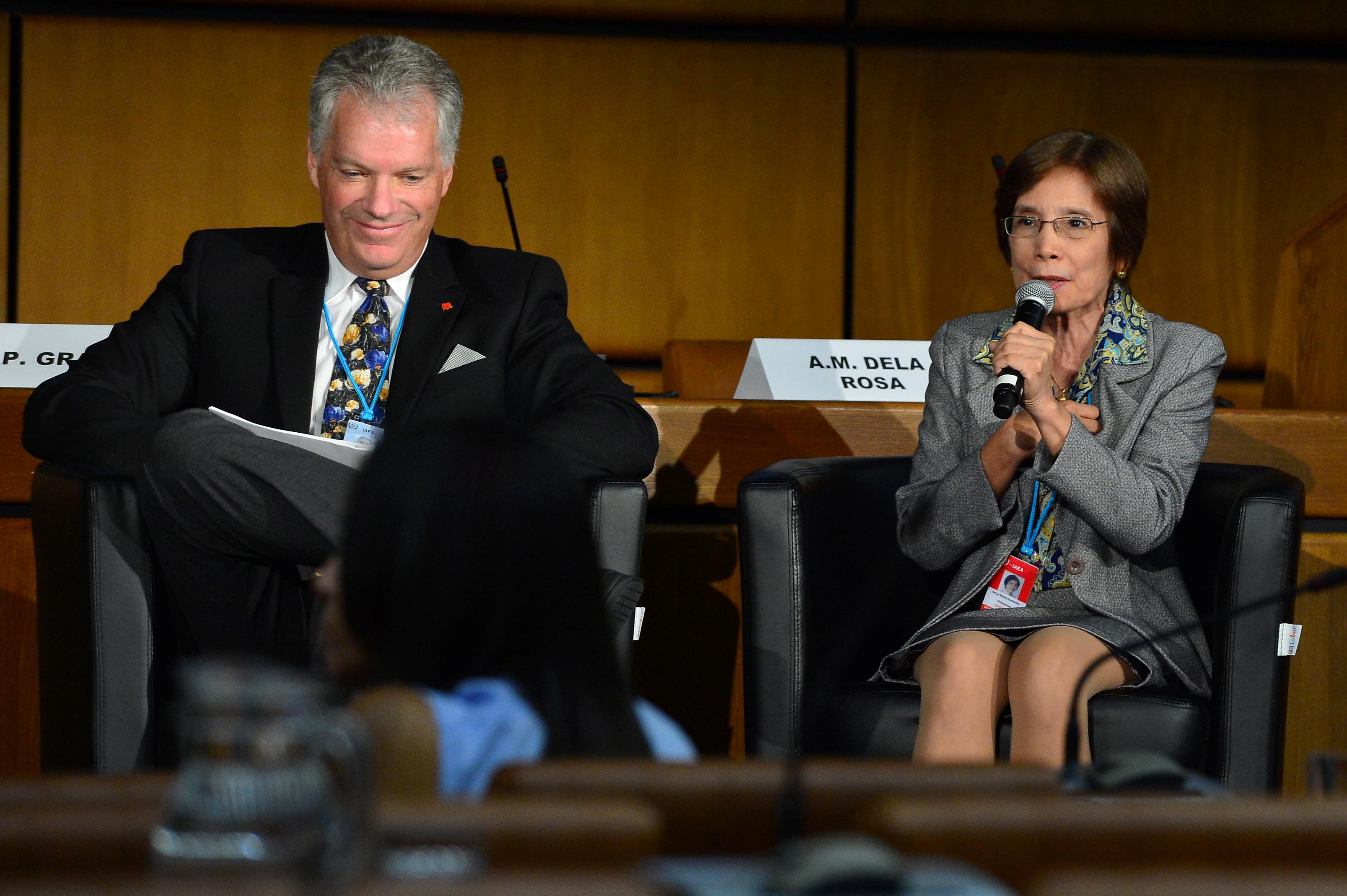
At the IAEA Scientific Forum “Atoms in Industry - Radiation Technology for Development”, Director Dela Rosa engages in a panel discussion with experts from other nations regarding the impact of radiation technology in their country’s industrial development. Photos by Dean Calma, IAEA
PNRI Director at the Panel of the IAEA Scientific Forum
On September 16, PNRI Director Dela Rosa served as one of the panelists at the concluding discussion of the IAEA Scientific Forum entitled Atoms in Industry - Radiation Technology for Development.
The two-day forum tackled on the potential of nuclear science and technology as a driving force for economic growth and sustainable development, particularly through radiation applications to improve the quality of everyday products and materials.
The PNRI director was also joined by speakers from Canada, Belgium and Pakistan as the panel discussed on how radiation technologies are being used to spur national development by providing more efficient and environment-friendly improvements in industrial processes.
Director Dela Rosa also had the honor of presenting the report of the IAEA Scientific Forum at the plenary of the General Conference on September 17.
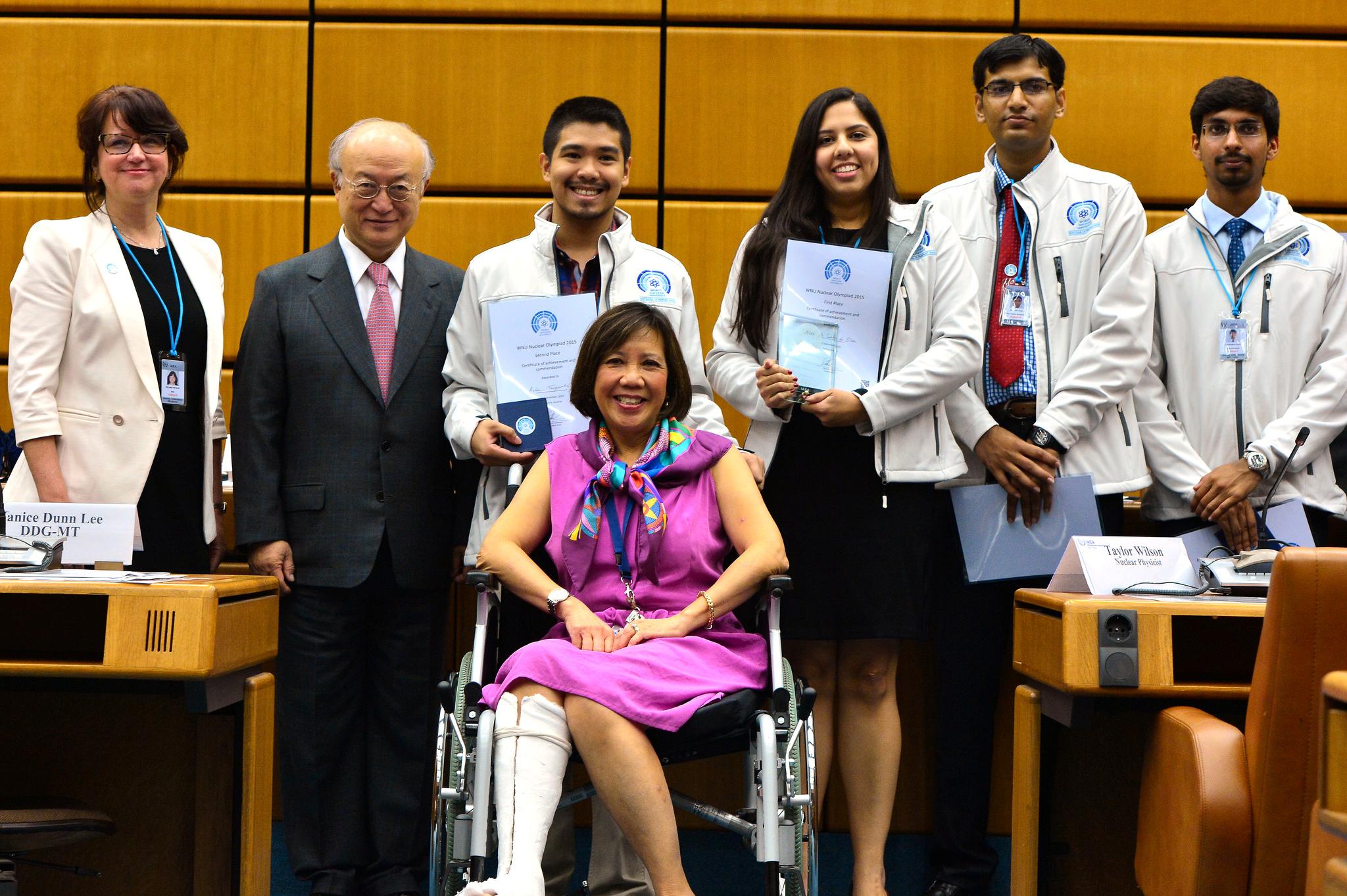
The top three winners at the Nuclear Olympiad with IAEA Director General Yukiya Amano (2nd from left): Mr. Anton Philippie Tanquintic (3rd from left), Ms. Alice Cunha da Silva (3rd from right), and Mr. Vivek Maradia (2nd from right) Photo by Dean Calma, IAEA
Filipino Fresh Grad Bags 2nd Place at Nuclear Olympiad
Meanwhile, fresh college graduate Anton Philippe Tanquintic made the Philippines proud by winning the second place during the General Conference side event entitled Nuclear Olympiad and Developing a Talent Pipeline on September 17.
The Nuclear Olympiad, which was started by the World Nuclear University, is a competition for young students around the world to creatively communicate the role of nuclear science in enhancing the quality of life of mankind. For this year, the participants were tasked to make a minute-long video on the peaceful benefits of nuclear and radiation applications.
Tanquintic, who finished his BS Applied Physics and BS Materials Science & Engineering at the Ateneo de Manila University, was an on-the-job trainee of the PNRI Applied Physics Research Section and a participant of its Annual Neutron School when he heard about the competition. His entry in the competition was the 59-second video entitled Nuclear Solutions for Today’s Needs, which he made with the help of his sister, Antoinette.
After making it through the early stages of the competition in July, Tanquintic was selected as one of the top five finalists who were sponsored by the WNU to go to Vienna during the General Conference. Along with Tanquintic are equally young minds who were both engaging in the field of nuclear engineering: Ms. Alice Cunha da Silva from Brazil, who won first place, and Mr. Vivek Maradia from India, who won third place.












































